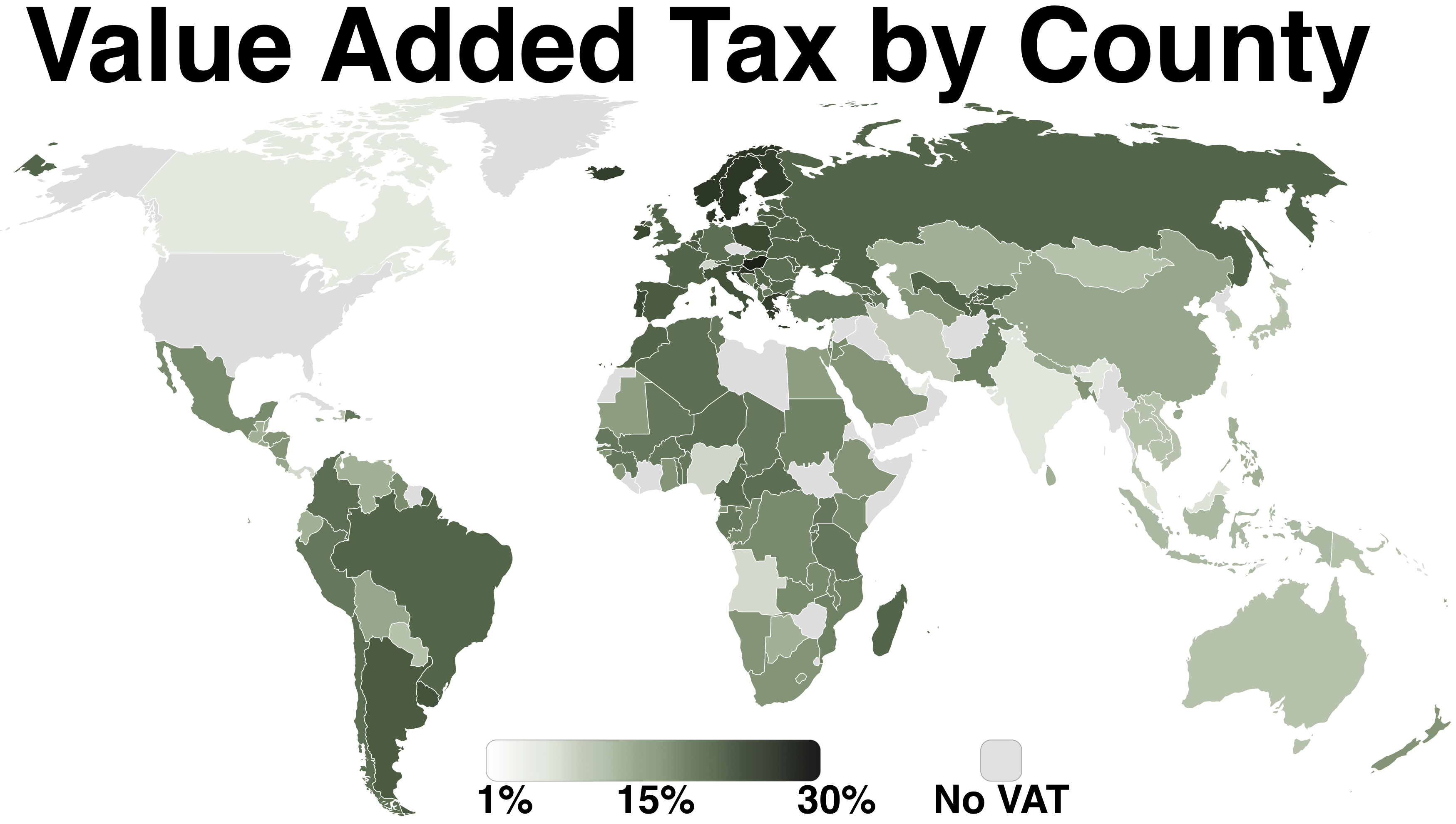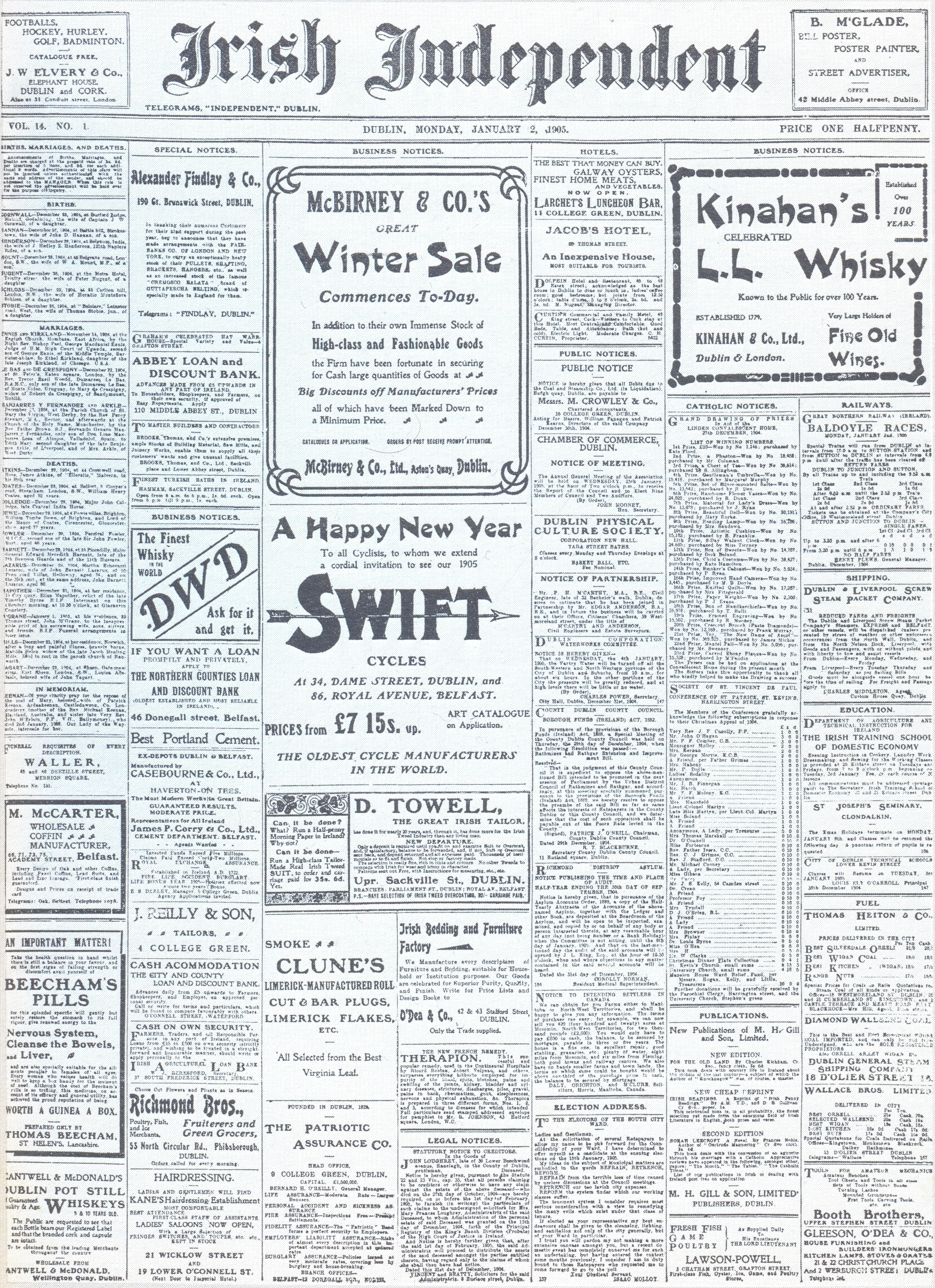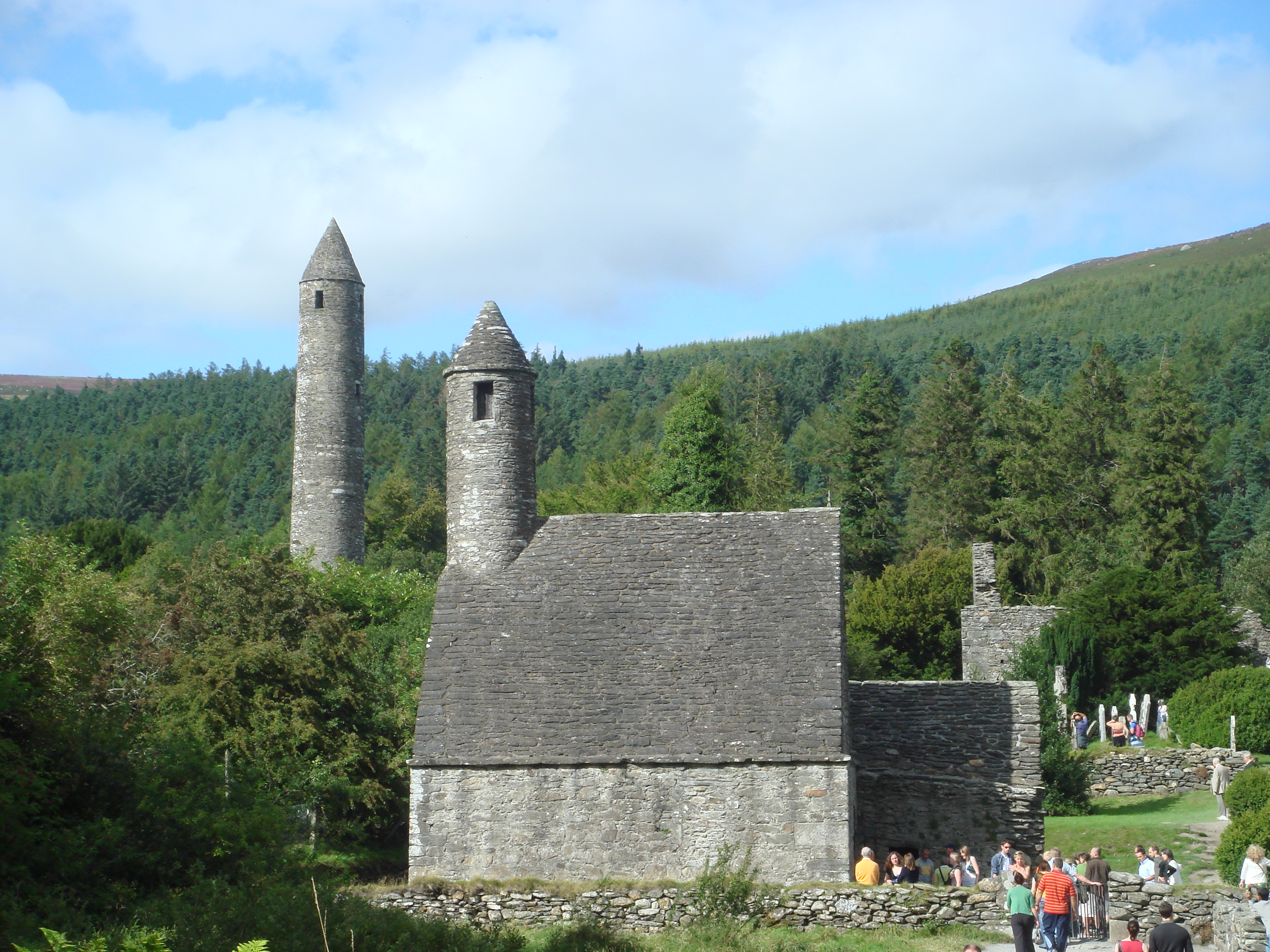|
2009 Irish Budget
The 2009 Irish budget was delivered on 14 October 2008, as the first budget in the tenure of Fianna Fáil's Brian Lenihan Jnr, Brian Lenihan as Minister for Finance (Ireland), Minister for Finance and the first of Taoiseach Brian Cowen's tenure. It was brought forward from its usual December date due to the global financial crisis of 2008, global financial crisis. The budget, labelled "the toughest in many years", included a number of controversial measures such as a proposed income levy and the withdrawal of previously promised HPV vaccines for schoolgirls. Other results of the budget included a new income levy being imposed on all workers above a specified threshold and the closure of a number of Irish Army barracks near the border with Northern Ireland. Public outcry arose over the proposed withdrawal of medical cards and the reinstatement of university fees. A series of demonstrations ensued amongst teachers and farmers, whilst on 22 October 2008, at least 25,000 pensioners a ... [...More Info...] [...Related Items...] OR: [Wikipedia] [Google] [Baidu] |
Brian Lenihan Jnr
Brian Joseph Lenihan (21 May 1959 – 10 June 2011) was an Irish Fianna Fáil politician who served as Minister for Finance from 2008 to 2011, Deputy Leader of Fianna Fáil from March 2011 to June 2011, Minister for Justice, Equality and Law Reform from 2007 to 2008 and Minister of State for Children from 2002 to 2007. He served as a Teachta Dála (TD) for the Dublin West constituency from 1996 to 2011. Early and private life Born in Dublin in 1959, Lenihan grew up in Athlone, County Westmeath until the age of 12, attending the local Marist Brothers primary school. He was then educated at Belvedere College, where he was school captain, then at Trinity College Dublin where he obtained an LL.B. (first class). He was elected a foundation scholar of the college in 1979. While in Trinity, he was Treasurer of the College Historical Society. Lenihan was later awarded an LL.M. (first class) at Sidney Sussex College, Cambridge and was called to the Irish Bar by the Honorable So ... [...More Info...] [...Related Items...] OR: [Wikipedia] [Google] [Baidu] |
Church Of Ireland
The Church of Ireland ( ga, Eaglais na hÉireann, ; sco, label= Ulster-Scots, Kirk o Airlann, ) is a Christian church in Ireland and an autonomous province of the Anglican Communion. It is organised on an all-Ireland basis and is the second largest Christian church on the island after the Roman Catholic Church. Like other Anglican churches, it has retained elements of pre-Reformation practice, notably its episcopal polity, while rejecting the primacy of the Pope. In theological and liturgical matters, it incorporates many principles of the Reformation, particularly those of the English Reformation, but self-identifies as being both Reformed and Catholic, in that it sees itself as the inheritor of a continuous tradition going back to the founding of Christianity in Ireland. As with other members of the global Anglican communion, individual parishes accommodate different approaches to the level of ritual and formality, variously referred to as High and Low Church. Overvie ... [...More Info...] [...Related Items...] OR: [Wikipedia] [Google] [Baidu] |
Decentralization
Decentralization or decentralisation is the process by which the activities of an organization, particularly those regarding planning and decision making, are distributed or delegated away from a central, authoritative location or group. Concepts of decentralization have been applied to group dynamics and management science in private businesses and organizations, political science, law and public administration, economics, money and technology. History The word "''centralisation''" came into use in France in 1794 as the post-French Revolution, Revolution French Directory leadership created a new government structure. The word "''décentralisation''" came into usage in the 1820s. "Centralization" entered written English in the first third of the 1800s; mentions of decentralization also first appear during those years. In the mid-1800s Alexis de Tocqueville, Tocqueville would write that the French Revolution began with "a push towards decentralization...[but became,] in the e ... [...More Info...] [...Related Items...] OR: [Wikipedia] [Google] [Baidu] |
Value Added Tax
A value-added tax (VAT), known in some countries as a goods and services tax (GST), is a type of tax that is assessed incrementally. It is levied on the price of a product or service at each stage of production, distribution, or sale to the end consumer. If the ultimate consumer is a business that collects and pays to the government VAT on its products or services, it can reclaim the tax paid. It is similar to, and is often compared with, a sales tax. VAT is an indirect tax because the person who ultimately bears the burden of the tax is not necessarily the same person as the one who pays the tax to the tax authorities. Not all localities require VAT to be charged, and exports are often exempt. VAT is usually implemented as a destination-based tax, where the tax rate is based on the location of the consumer and applied to the sales price. The terms VAT, GST, and the more general consumption tax are sometimes used interchangeably. VAT raises about a fifth of total tax revenues bo ... [...More Info...] [...Related Items...] OR: [Wikipedia] [Google] [Baidu] |
Irish Independent
The ''Irish Independent'' is an Irish daily newspaper and online publication which is owned by Independent News & Media (INM), a subsidiary of Mediahuis. The newspaper version often includes glossy magazines. Traditionally a broadsheet newspaper, it introduced an additional compact size in 2004. Further, in December 2012 (following billionaire Denis O'Brien's takeover) it was announced that the newspaper would become compact only. History Murphy and family (1905–1973) The ''Irish Independent'' was formed in 1905 as the direct successor to ''The Irish Daily Independent and Daily Nation'', an 1890s' pro-Parnellite newspaper. It was launched by William Martin Murphy, a controversial Irish nationalist businessman, staunch anti-Parnellite and fellow townsman of Parnell's most venomous opponent, Timothy Michael Healy from Bantry. The first issue of the ''Irish Independent'', published 2 January 1905, was marked as "Vol. 14. No. 1". During the 1913 Lockout of workers, in ... [...More Info...] [...Related Items...] OR: [Wikipedia] [Google] [Baidu] |
RTÉ
(RTÉ) (; Irish language, Irish for "Radio & Television of Ireland") is the Public broadcaster, national broadcaster of Republic of Ireland, Ireland headquartered in Dublin. It both produces and broadcasts programmes on RTÉ Television, television, RTÉ Radio, radio and RTÉ.ie, online. The radio service began on 1 January 1926, while regular television broadcasts began on 31 December 1961, making it one of the oldest continuously operating public service broadcasters in the world. RTÉ also publishes a weekly listings and lifestyle magazine, the ''RTÉ Guide''. RTÉ is a statutory body, overseen by a board appointed by the Government of Ireland, with general management in the hands of the RTÉ Executive Board, Executive Board, headed by the Director-General. RTÉ is regulated by the Broadcasting Authority of Ireland. RTÉ is financed by Television licensing in the Republic of Ireland, television licence fee and through advertising, with some of its services funded solely by a ... [...More Info...] [...Related Items...] OR: [Wikipedia] [Google] [Baidu] |
Dáil Éireann
Dáil Éireann ( , ; ) is the lower house, and principal chamber, of the Oireachtas (Irish legislature), which also includes the President of Ireland and Seanad Éireann (the upper house).Article 15.1.2º of the Constitution of Ireland reads: "The Oireachtas shall consist of the President and two Houses, viz.: a House of Representatives to be called Dáil Éireann and a Senate to be called Seanad Éireann." It consists of 160 members, each known as a (plural , commonly abbreviated as TDs). TDs represent 39 constituencies and are directly elected for terms not exceeding five years, on the system of proportional representation by means of the single transferable vote (PR-STV). Its powers are similar to those of lower houses under many other bicameral parliamentary systems and it is by far the dominant branch of the Oireachtas. Subject to the limits imposed by the Constitution of Ireland, it has power to pass any law it wishes, and to nominate and remove the Taoiseach (head of ... [...More Info...] [...Related Items...] OR: [Wikipedia] [Google] [Baidu] |
Joe Behan
Joe Behan (born 30 July 1959) is an Irish politician. He served as a Teachta Dála (TD) for the Wicklow constituency from 2007 to 2011. He was elected as a TD at the 2007 general election. A former teacher and primary school principal from Bray, Behan was a long-serving member of Bray Town Council and Wicklow County Council, winning and holding his seat at the 1999 and 2004 local elections. He was Cathaoirleach (chairman) of Wicklow County Council from 2006 to 2007, but in accordance with the abolition of the dual mandate under the Local Government Act 2001 he was deemed to have resigned his council seats when elected to the Dáil in 2007. Behan unsuccessfully sought the Fianna Fáil nomination to contest the 1997 general election in the Wicklow constituency. He did not win a nomination until December 2006, when he was one of three candidates selected by the party for the 2007 general election. He was elected to Dáil Éireann at the 2007 general election. On 17 October 200 ... [...More Info...] [...Related Items...] OR: [Wikipedia] [Google] [Baidu] |
County Wicklow
County Wicklow ( ; ga, Contae Chill Mhantáin ) is a county in Ireland. The last of the traditional 32 counties, having been formed as late as 1606, it is part of the Eastern and Midland Region and the province of Leinster. It is bordered by the Irish Sea to the east and the counties of Wexford to the south, Carlow to the southwest, Kildare to the west, and South Dublin and Dún Laoghaire–Rathdown to the north. Wicklow is named after its county town of Wicklow, which derives from the name (Old Norse for "Vikings' Meadow"). Wicklow County Council is the local authority for the county, which had a population of 155,258 at the 2022 census. Colloquially known as the "Garden of Ireland" for its scenerywhich includes extensive woodlands, nature trails, beaches, and ancient ruins while allowing for a multitude of walking, hiking, and climbing optionsit is the 17th largest of Ireland's 32 counties by area and the 15th largest by population. It is also the fourth largest of Lein ... [...More Info...] [...Related Items...] OR: [Wikipedia] [Google] [Baidu] |
Coalition
A coalition is a group formed when two or more people or groups temporarily work together to achieve a common goal. The term is most frequently used to denote a formation of power in political or economical spaces. Formation According to ''A Guide for Political Parties'' published by National Democratic Institute and The Oslo Center for Peace and Human Rights, there are five steps of coalition-building: # Developing a party strategy: The first step in coalition-building involves developing a party strategy that will prepare for successful negotiation. The more effort parties place on this step, the more likely they are to identify strategic partners, negotiate a good deal and avoid some of the common mistakes associated with coalition-building. # Negotiating a coalition: Based on the strategy that each party has prepared, in step 2 the parties come together to negotiate and hopefully reach agreement on the terms for the coalition. Depending on the context and objectives of the co ... [...More Info...] [...Related Items...] OR: [Wikipedia] [Google] [Baidu] |






